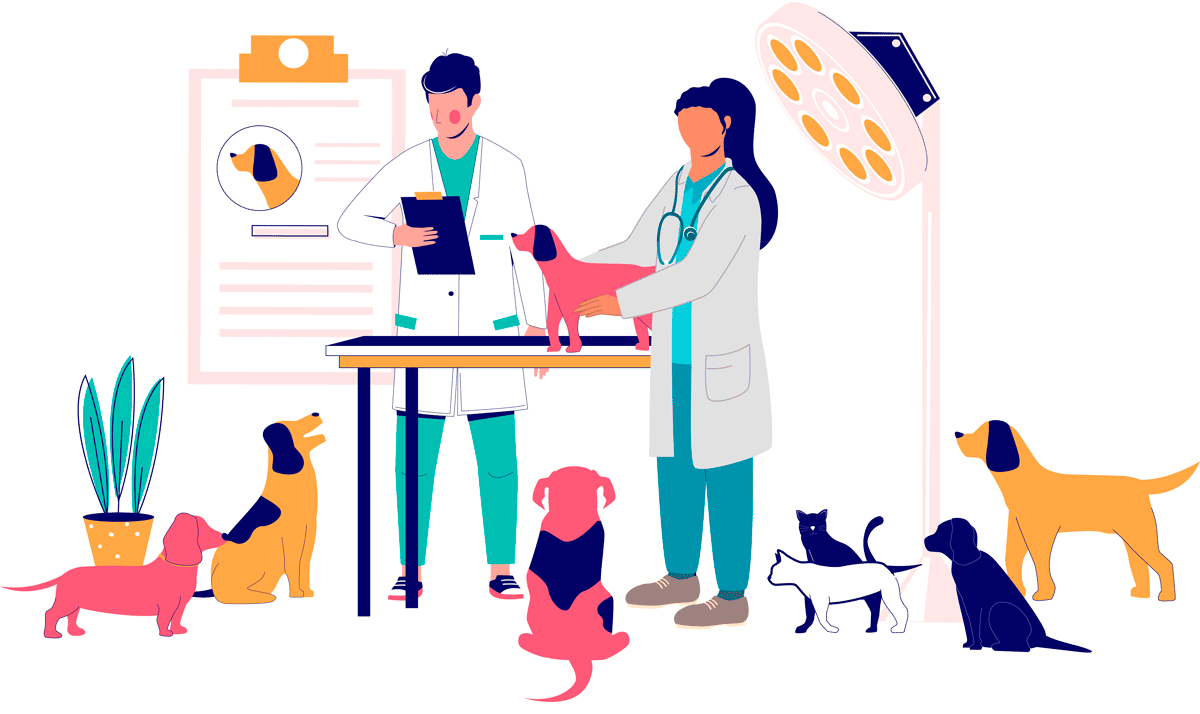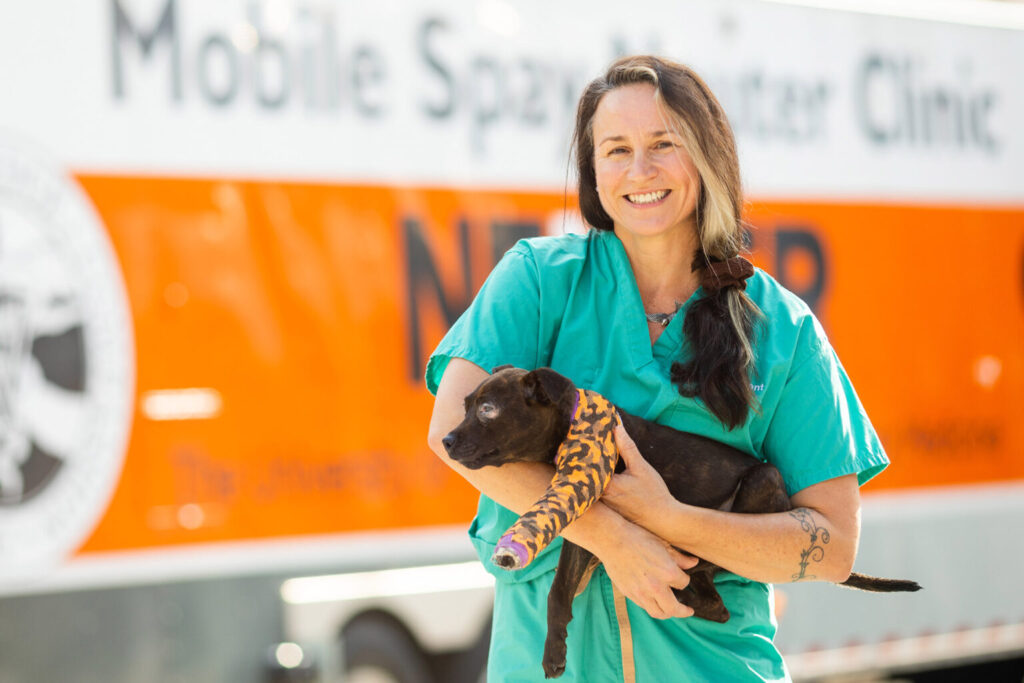Signs your pet may need a Veterinary Cancer Specialist consultation
Comprehending the Role of a Vet Oncologist in Your Pet dog's Cancer Care
A vet oncologist specializes in detecting and treating cancer cells in animals. Their proficiency is critical for developing tailored therapy plans that attend to the one-of-a-kind needs of each family pet. Early medical diagnosis can significantly affect end results, making their role a lot more critical. Recognizing the various treatment choices and how these professionals work together with primary vets is important. What methods do they utilize to improve your pet dog's quality of life during this challenging time?

What Is a Vet Oncologist?
A veterinary oncologist is a customized vet who concentrates on detecting and treating cancer cells in family pets. These specialists possess sophisticated training in both vet medication and oncology, enabling them to comprehend the complexities of malignant conditions in pets. Their expertise allows them to do a selection of diagnostic procedures, including imaging methods and research laboratory tests, to accurately determine various sorts of cancers cells in pets.
In addition to diagnosis, vet oncologists establish customized therapy strategies, which might consist of surgery, radiation treatment, radiation treatment, or palliative treatment. They function very closely with pet dog owners to explain treatment options and prospective results, making certain that family members make educated choices concerning their pets' care. Moreover, veterinary oncologists often collaborate with various other vet professionals and basic practitioners, producing a detailed approach to pet dog wellness. By concentrating on cancer treatment, they play a critical function in improving the quality of life for pet dogs identified with malignancies.
The Relevance of Very Early Diagnosis and Therapy
Early diagnosis and therapy of cancer in pet dogs substantially improve the possibilities of successful results and enhanced lifestyle. Vet oncologists can apply targeted interventions that may slow disease progression and reduce signs and symptoms when cancer cells is determined in its very early stages. This positive approach permits far better management of the illness, possibly causing longer survival times and enhanced comfort for the pet dog.
Additionally, early discovery frequently suggests that treatment choices might be less invasive and a lot more effective, lowering the overall burden on both the pet dog and its owner. Regular vet exams and understanding of refined behavioral modifications are essential, as they can help with prompt medical diagnoses. Proprietors need to remain alert and consult their vet at the initial sign of issue. Veterinary Oncology Services. Inevitably, a very early medical diagnosis encourages pet owners to make enlightened decisions about their pet's treatment, substantially influencing the total trip via cancer cells monitoring
Therapy Choices Used by Veterinary Oncologists
When faced with a cancer diagnosis, family pet proprietors can check out a range of treatment options provided by veterinary oncologists that are customized to the certain requirements of their animals. These specialists normally use a combination of surgery, chemotherapy, radiation treatment, and immunotherapy. Surgical treatment might aim to remove tumors or influenced cells, while chemotherapy uses medicines to target and eliminate cancer cells, usually carried out in cycles.
Radiation treatment concentrates on making use of high-energy rays to alleviate and reduce growths discomfort. Immunotherapy, a much more recent development, harnesses the animal's body immune system to battle cancer cells a lot more properly. Additional encouraging therapies, such as discomfort administration, dietary support, and palliative treatment, are also essential parts of a complete treatment strategy. By assessing each instance separately, vet oncologists ensure that the chosen treatment straightens with the family pet's general health and cancer cells type, optimizing the opportunities of a positive outcome.
The Collaborative Strategy: Dealing With Your Main Veterinarian
Cooperation in between primary veterinarians and vet oncologists is vital for supplying extensive like pet dogs diagnosed with cancer. This collaboration guarantees a complete method to therapy, integrating the specialized expertise of oncologists with the continuous care provided by key vets. Together, they evaluate the family pet's health and wellness, create personalized therapy strategies, and monitor the animal's development throughout the cancer cells trip.
Main vets often serve as the preliminary point of get in touch with, determining possible indicators of cancer cells and referring people to oncologists for specialized diagnostics and treatment choices. Complying with the oncologist's recommendations, the primary vet plays a key function in taking care of the pet's overall health and wellness, consisting of discomfort management and encouraging treatment.
Reliable interaction in between these experts promotes a unified technique, enabling timely treatments and changes to therapy as needed. This collaborative approach inevitably boosts the top quality of treatment and support for pets and their proprietors throughout a difficult time.


Supporting Your Pet Through Cancer Cells Treatment
Supporting an animal through cancer cells treatment needs a detailed understanding of the physical and psychological difficulties faced by both the pet and its proprietor. Caregivers should be mindful to the pet's changing demands, which may include taking care of pain, changing diets, and checking adverse effects from treatments. Providing a comfy, hassle-free setting is necessary for the family pet's well-being.
Psychological support is just as crucial; owners need to seek to remain favorable and engaged while understanding their own sensations of stress and anxiety and despair. Producing More Bonuses an assistance network, including vets, household, and friends, can relieve some concerns.
Additionally, animal proprietors need to educate themselves concerning the certain kind of cancer and therapy choices offered, cultivating notified conversations with veterinary oncologists. Eventually, a thoughtful method, incorporated with proactive treatment and assistance, can enhance the go to this web-site family pet's lifestyle during this difficult trip.
Frequently Asked Concerns
How Do I Choose the Right Veterinary Oncologist for My Family pet?
Selecting the appropriate vet oncologist entails investigating certifications, looking for referrals, evaluating experience with specific cancers, gauging communication styles, and visiting facilities to guarantee a comfortable environment for both the pet and proprietor throughout therapy.
What Should I Anticipate Throughout the First Visit?
During the first appointment, the pet proprietor can anticipate a detailed assessment, conversation of case history, diagnostic examinations, and a therapy strategy rundown. The vet will deal with concerns and provide guidance for recurring treatment.
Are There Any Prices Connected With a Veterinary Oncologist's Providers?
Prices linked with a veterinary oncologist's services can vary significantly based on area, treatment intricacy, and called for diagnostics. Board Certified Veterinary Oncologist. Pet proprietors must anticipate expenditures for examinations, tests, and potential recurring treatment strategies customized to their pets' demands

Can My Animal Still Receive Regular Vet Treatment While Seeing an Oncologist?
Animals can receive normal vet care while seeing an oncologist. Coordinating therapies assurances complete health and wellness management. Regular exams complement specialized cancer cells treatment, enabling for holistic surveillance of the family pet's general well-being and resolving other health problems.
What Resources Are Offered for Pet Owners Throughout Their Pet's Cancer cells Journey?
Different resources are offered for pet proprietors maneuvering their pet dog's cancer trip, including assistance groups, online discussion forums, instructional web sites, and monetary support programs, all focused on giving assistance, emotional support, and practical details throughout this challenging time.
A veterinary oncologist is a specialized vet who concentrates on dealing with and diagnosing cancer in animals. They function closely with pet dog proprietors to explain treatment options and potential end results, making certain that family members make informed choices about their family pets' treatment. When faced with a cancer medical diagnosis, family pet proprietors can explore a range of therapy choices supplied by vet oncologists that are customized to the particular requirements of their animals. Cooperation in between vet oncologists and key veterinarians is vital for supplying extensive treatment my review here to pet dogs detected with cancer. In addition, family pet proprietors must enlighten themselves about the certain type of cancer cells and therapy alternatives available, cultivating educated discussions with vet oncologists.